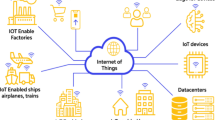Abstract
Portable chargers are saviors to our electrical devices that can help us to move along while using and charging it, eventually. But, at last these portable chargers also need the energy out of electricity. So, what if an external energy that is limitless to use can charge up devices and work the way it does? Solar energy is a major power play or a next step ahead to portable chargers powered by electricity. The technology that has been developed to store the rays emitted by the sun and then convert it into electricity is a clean and renewable power source that nowadays is at its peak to suppress the electrical industry. Somehow there are challenges attached to it, like irregularity, limited energy supply, and limited storage. The limited storage is a separate photovoltaic system and can be reduced by absorption of energy from the storage devices. In this case, the battery stores the energy that is received by the sunrays and later helps to obtain energy stored in battery in a usable form.
This chapter includes the architecture and updates of an efficient, renewable energy-powered battery charging system that is programmed by a microcontroller. The system includes different parameters that will help in the model to work like the maximum power point tracking also initialized as MPPT and other components like Arduino UNO for programming and functioning, an LCD display for the outcome to be analyzed, and a Wi-Fi module attached to data storage that will help to upload the data and further keep a check on the health of the battery, for proper maintenance. A bigger module is implicated to household projects that are also called the solar home systems (SHS).
Access this chapter
Tax calculation will be finalised at checkout
Purchases are for personal use only
Similar content being viewed by others
References
EL-Mohan, M. S. (2012). Fuzzy controller design using FPGA for photovoltaic maximum power point tracking. International Journal of Advanced Research in Artificial Intelligence, 1(3).
Zhou Yangzhou **xing. (2010). Application of Fuzzy Logic control approach in a microcontroller based sun tracking system. WASE international conference on Information Engineering.
Arduino connection with Wi-Fi circuit. http://www.teomaragakis.com/hardware/electronics/how-to-connect-an-esp8266-to-an-arduino-uno/
MPPT VS PWM. https://www.youtube.com/watch?v=PB6zojol9o0
Maunder, J., Naraseeyappa, S., & Antalkali, S. (2017). Analysis of PV techniques to avoid loss of energy and resources: Application of saving the expensive PVC module and attached solar panel. J Big Data, 4, 20. https://doi.org/10.11106/s405437-0157-00677-74.
AC to AC or DC to DC charge convertor. https://wallbox.com/en_catalog/faqs-difference-ac-dc#:~:text=The%20difference%20between%20AC%20charging,onboard%20charger%20to%20convert%20it.
Author information
Authors and Affiliations
Corresponding author
Editor information
Editors and Affiliations
Rights and permissions
Copyright information
© 2022 Springer Nature Switzerland AG
About this chapter
Cite this chapter
Sharma, M., Chauhan, A. (2022). Solar-Powered Portable Charger Using IoT-Based Technique. In: Moh, M., Sharma, K.P., Agrawal, R., Garcia Diaz, V. (eds) Smart IoT for Research and Industry. EAI/Springer Innovations in Communication and Computing. Springer, Cham. https://doi.org/10.1007/978-3-030-71485-7_11
Download citation
DOI: https://doi.org/10.1007/978-3-030-71485-7_11
Published:
Publisher Name: Springer, Cham
Print ISBN: 978-3-030-71484-0
Online ISBN: 978-3-030-71485-7
eBook Packages: EngineeringEngineering (R0)




